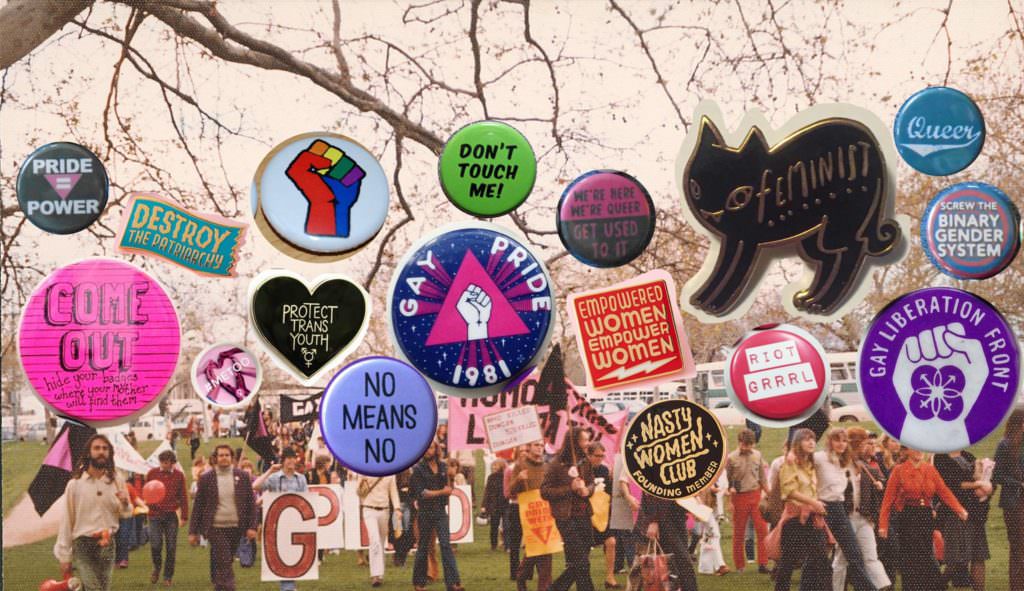- Differences between heterosexual, bisexual, and lesbian women in recalled childhood experiences
- Topic - ABC News (Australian Broadcasting Corporation)
- Sex encounters Melbourne, personal ads Melbourne
- Share what Pride Week means to you
Results indicate that young people in Australia are articulate and understanding of the gaps in their sex education.
Differences between heterosexual, bisexual, and lesbian women in recalled childhood experiences
A majority of comments highlighted negative experiences. These comments primarily discussed issues of delivery timing, environment, person and content quality comprehensiveness. A minority highlighted positive commentary also around delivery environment, person and content quality comprehensiveness. The findings of this study illuminate contemporary adolescent concerns regarding their experiences of education.
Understanding these experiences can inform future curriculum development, teacher training and the design and implementation of policy. Most users should sign in with their email address. If you originally registered with a username please use that to sign in. Oxford University Press is a department of the University of Oxford.
- christian speed dating events in Hoppers Crossing Australia?
- Lesbian Dating with EliteSingles.
- Best Lesbian Dating Sites Reviews - sms.digitalmediaplus.org?
- AIFS Secondary links.
- new dating site in Geraldton Australia?
It furthers the University's objective of excellence in research, scholarship, and education by publishing worldwide. Sign In or Create an Account.
Topic - ABC News (Australian Broadcasting Corporation)
Joongbu University. Sign In. Advanced Search. Search Menu. Article Navigation. Close mobile search navigation Article Navigation. Oxford Academic. Google Scholar.
Sex encounters Melbourne, personal ads Melbourne
Roz Bellamy. These assumptions reinforced through cultural beliefs and practices and through social and political institutions such as the law, family structures and religious beliefs Fileborn, and thus become heteronormative see below. Individuals who challenge this world view are subject to discrimination, and often abuse. Heterosexism provides the "social backdrop" for homophobic, biphobic and transphobic prejudices, violence and discrimination Fileborn, As Leonard et al.
This framework suggests that homophobia and transphobia are both discrete forms of discrimination and also part of a singular, coordinated system for punishing those who in different ways pose a threat to heterosexist privilege and authority. Heteronormativity is the internalisation of heterosexism at the individual, cultural and institutional level.
Lorenzetti and colleagues described heteronormativity as "an internalised set of expectations about gender and sexuality" , p. An LGBTIQ partner may use their partner's sexuality or identity as a form of control by limiting their access to friends and social networks, or by threatening to tell their partner's employer, parent, children, landlord or friends about their same-sex relationship or trans identity Calton et al.
This can result in the fear of loss of children, employment, relationships or housing Calton et al. Internalised homophobia can manifest within an abuser as "contempt for an intimate partner" Lorenzetti et al.
An abusive partner may also use homophobia or transphobia to control and isolate a partner by suggesting that they will not be believed or that they shouldn't report the violence as they will be discriminated against by services and the law Calton et al. Similarly, gay men may have difficulty conceptualising certain behaviours, such as rape within an intimate relationship, as intimate partner violence Donovan et al. There are several issues that act as barriers to LGBTIQ people seeking help from and using support services and the criminal justice system Calton et al.

These include:. Calton and colleague's review of the literature found that gender roles and assumptions about LGBTIQ relationships affect the way domestic violence service providers view intimate partner violence. As described above, the dominant view of men as perpetrators and women as victims may inhibit the ability of both victims and service providers to recognise intimate partner violence in LGBTIQ relationships.
In lesbian relationships involving physical violence, for instance, there may be the assumption that women are incapable of exerting physical power over other women. Similarly, stereoypes about gay men not being "masculine" might result in views that they are not capable of violence Calton et al. Trans victims may be especially affected by a heteronormative lens: "without the sterotypically masculine agressor and sterotypically female victim easily identifiable, both survivor and potential helpers may not recognise abuse" though some victims may be in relationships with heterosexual men Calton et al.
As such, it is important for services to determine the perpetrator. An Australian study examining lesbian experiences of intimate partner violence , for example, found that mainstream domestic violence service providers are often unaware of the particular strategies used by abusers, such as the threat of "outing" as a form of control Hotten, in Fileborn, Some services may not be welcoming or accepting of LGBTIQ communities Fileborn, ; for example, by not providing appropriate options on client intake forms i. Lack of understanding and discrimination may affect trans or intersex individuals more severely; for example, trans women may be refused entry to "women only" domestic violence emergency shelters Calton et al.
Research from the USA suggests that trans individuals experience discrimination in medical and health settings and from therapeutic programs at higher rates than other populations Calton et al. In a survey of 65 mainstream domestic violence services in NSW, the report found:. This needs to occur in the general public as well as within domestic violence services and the justice system. Lorenzetti and colleague's framework for prevention of intimate partner violence in LGBTIQ populations was written for a Canadian audience; however, it is relevant to the Australian context.
The framework suggests that building the capacity and knowledge of health care professionals, child welfare professionals, education workers, domestic violence services and the justice system through education and training is imperative in order to improve understanding and responses, and to prevent further violence.
Stigma is another key issue that prevents survivors seeking help, and research suggests this is particularly an issue for bisexual and trans-identifying individuals Calton et al. Stigma works in various ways to inhibit help-seeking behaviours. Main Menu New Students Guide.
Share what Pride Week means to you
Main Menu Student essentials. Main Menu Student Life. Main Menu Support and facilities.
Main Menu Study support. Main Menu Work and study opportunities. He is an advocate for RMIT's spirit of inclusion. Watch our launch video. Get involved. Morning tea series. More information. Register for Pride Week For more information and updates about our program of events.
Register here. Share what Pride Week means to you. Now, more than ever, we need to look after eachother and stay connected. Share your Pride Week experiences, spread kindness, and help support others during this challenging time.
